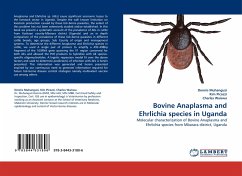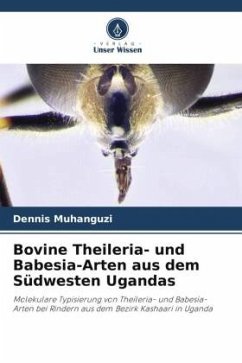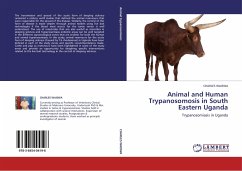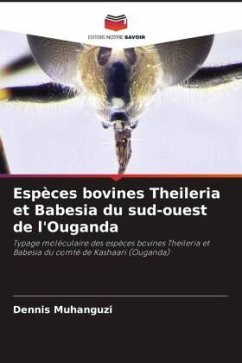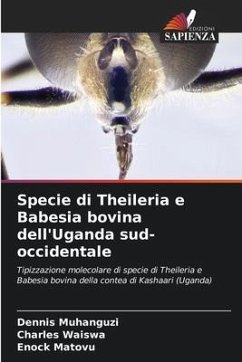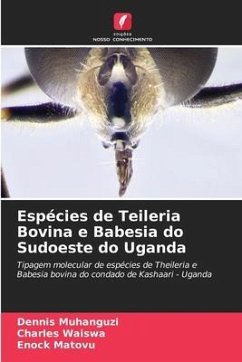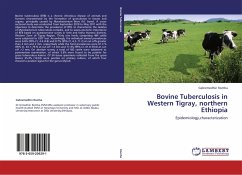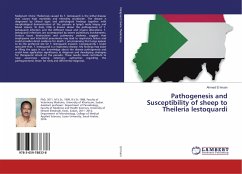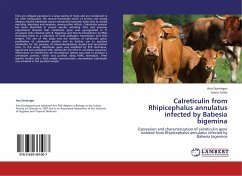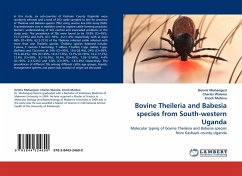
Bovine Theileria and Babesia species from South-western Uganda
Molecular typing of bovine Theileria and Babesia species from Kashaari county-Uganda
Versandkostenfrei!
Versandfertig in 6-10 Tagen
32,99 €
inkl. MwSt.

PAYBACK Punkte
16 °P sammeln!
In this study, six sub-counties of Kashaari County (Uganda) were randomly selected and a total of 363 cattle sampled to test for presence of Theileria and Babesia species (TBs) using reverse line blot assay (RLB). A questionnaire was in addition used to explore cattle farming practices, farmers' understanding of tick control and associated problems in the study area. The prevalence of TBs were found to be 19.8% (CI=95%, 15.7-23.9%) and 0.6% (CI= 95%, -0.2-1.4%) respectively with at least 68% (CI=95%, 63.2-72.8) of the Theileria infected cattle infected with more than one Theileria species. The...
In this study, six sub-counties of Kashaari County (Uganda) were randomly selected and a total of 363 cattle sampled to test for presence of Theileria and Babesia species (TBs) using reverse line blot assay (RLB). A questionnaire was in addition used to explore cattle farming practices, farmers' understanding of tick control and associated problems in the study area. The prevalence of TBs were found to be 19.8% (CI=95%, 15.7-23.9%) and 0.6% (CI= 95%, -0.2-1.4%) respectively with at least 68% (CI=95%, 63.2-72.8) of the Theileria infected cattle infected with more than one Theileria species. Theileria species detected include; T.parva, T. mutans T.taurotragi, T. vilifera, T.buffeli, T.spp. (sable), T.spp. (buffalo) and T.bicornis at 24% (CI=95%, 19.6-28.4%), 24% (CI=95%, 19.6-28.4%), 14% (CI=95%, 10.4-17.6%), 13.7% (CI=95%, 10.2-17.2%), 12.6% (CI=95%, 9.2-16.0%), 10.4% (CI=95%, 7.26-13.54%), 4.4% (CI=95%, 2.3-6.5%) and 3.8% (CI=95%, 1.8-5.8%) respectively. The prevalences of different TBs among different cattle age groups, breeds, management systems and place (sub county) of origin are discussed.



